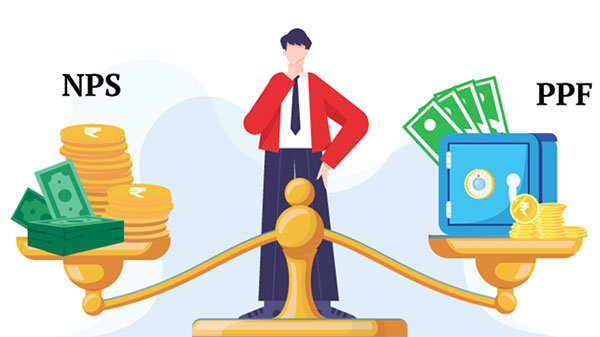NPS Enhancement Proposals Gather Momentum Ahead of Budget 2024 Announcement
The National Pension System (NPS) stands as a cornerstone of India’s government-sponsored retirement savings initiatives, under the governance of the Pension Fund Regulatory and Development Authority (PFRDA). Designed to furnish participants with an array of investment options spanning the realms of equity, government securities, corporate bonds, and alternative assets, the NPS is tailored to cater to the individual’s risk proclivity as they build a retirement nest egg.
In contrast, the Public Provident Fund (PPF) operates as a government-backed savings avenue featuring fixed returns, with rates determined by the government on a quarterly basis. Traditionally, PPF accounts are popularly associated with long-term financial objectives.
Adopting an Equitable Approach
Renowned Mumbai-based tax and investment expert Balwant Jain underscores the imperative of endowing NPS with parity akin to the treatment accorded to Public Provident Fund. Both investments, engineered for the long haul and exclusively geared towards retirement perks, warrant equitable consideration without biased differentials.
Tax Implications and Recommendations
Jain elucidates that while NPS garners some tax benefits through deductions under Section 80CCD (1) and 80CCD (1B), full-fledged tax exemption remains a distant reality. At maturity, only 60% of the accumulated corpus can be withdrawn tax-free, compelling individuals to allocate the remaining 40% to purchase annuities from life insurance companies, subjecting annuity receipts to full taxation.
Kurian Jose, CEO of Tata Pension Management, advocates for an elevation of the NPS ceiling to ₹1,00,000/- across tax brackets while calling for the alignment of corporate NPS tax exemptions with Provident Fund standards. The proposal for elevating the current 10% exemption of basic salary under Sec 80CCD (2) to 12% for corporate subscribers, with future alignment at 14%, reflects a concerted endeavor to uphold consistency within the governmental and corporate spheres, resonating with PFRDA’s persistent advocacy.
Anticipating Reforms
The impending Union Budget 2024, scheduled for presentation by Finance Minister Nirmala Sitharaman on February 1, signals the potential for financial policy amendments. The ongoing trajectory set by the Modi government encompassing the introduction of a new tax regime in FY 2020-21, alongside subsequent efforts aimed at enhancing its allure, underscores a commitment to refining fiscal paradigms.
Treading the Fiscal Landscape
Nirmala Sitharaman’s pivotal initiatives during Budget 2023, underwriting a standard deduction of ₹50,000 and extending tax rebates, reflect the government’s unwavering dedication to fostering an environment conducive to prudent financial planning. These endeavors ultimately serve to fortify the appeal of the new tax regime, affirming the government’s commitment to bolstering the financial well-being of its citizenry.
Disclaimer: The views and recommendations made above are those of individual analysts, and not of Smart Investor Digest. We advise investors to check with certified experts before taking any investment decisions.











